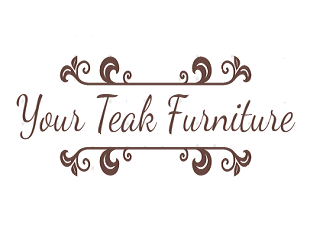In the bustling world of restaurant kitchens, cleanliness is not just a matter of aesthetics—it’s a critical component of food safety and overall operational efficiency. One of the key areas demanding meticulous attention is the kitchen floor. In this comprehensive guide, we’ll explore effective strategies for keeping restaurant kitchen floors impeccably clean, ensuring a hygienic environment that meets industry standards.
The Importance of Clean Kitchen Floors
Hygiene and Food Safety
- Preventing Contamination:Clean floors help prevent cross-contamination, a crucial aspect in maintaining food safety standards.
- Bacteria Control:Regular cleaning minimizes the growth of bacteria, safeguarding both customers and staff from potential health hazards.
Operational Efficiency
- Smooth Operations:Clean floors contribute to a smooth workflow by preventing slips and falls, ensuring a safer working environment.
- Equipment Longevity:Proper floor maintenance extends the life of kitchen equipment by reducing wear and tear caused by debris and grime.
Effective Cleaning Strategies
Daily Sweeping and Dry Cleaning
- Purposeful Sweeping:
- Sweep kitchen floors daily to remove loose debris, crumbs, and food particles.
- Use sturdy brooms or brushes designed for commercial kitchen use.
- Dry Mopping:
- Dry mop the floor to pick up remaining dust and particles.
- Focus on high-traffic areas and around equipment where debris tends to accumulate.
Regular Wet Cleaning
- Choosing the Right Cleaner:
- Select a suitable commercial kitchen floor cleaner based on the flooring material.
- Avoid using harsh chemicals that may damage the floor or leave residues.
- Meticulous Mopping:
- Use a well-wrung mop to avoid excessive water on the floor.
- Pay special attention to corners and edges where dirt tends to accumulate.
- Deep Cleaning Schedule:
- Establish a routine for deep cleaning, involving a more thorough scrubbing of the floor.
- Consider professional deep cleaning services periodically.
Managing Grease Buildup
- Daily Grease Removal:
- Wipe down surfaces prone to grease buildup, such as range hoods, walls, and equipment.
- Use degreasers as needed to break down and remove stubborn grease.
- Preventing Grease Spills:
- Regularly empty grease traps to prevent overflow and spills.
- Place absorbent materials in areas where grease may accumulate.
Addressing Grout and Tile
- Grout Scrubbing:
- Scrub grout lines regularly to prevent discoloration and mold growth.
- Consider using a toothbrush or grout brush for detailed cleaning.
- Tile Sealing:
- Seal tile floors to protect grout and make cleaning more manageable.
- Reapply sealant as needed to maintain effectiveness.
Rochester Cleaning Company: Professional Support
Specialized Floor Cleaning
- Expertise in Flooring Materials:
- A reputable Rochester cleaning companypossesses expertise in cleaning various flooring materials, from tiles to epoxy-coated concrete.
- They can tailor cleaning methods based on the specific needs of the kitchen floor.
- Industrial-Grade Equipment:
- Cleaning companies often use industrial-grade equipment, ensuring a deep and thorough cleaning that may be challenging to achieve with conventional tools.
- Scheduled Cleaning Services:
- Consider enlisting the services of a cleaning company on a scheduled basis for consistent maintenance.
- Professional cleaners can work during non-operational hours to minimize disruption to restaurant activities.
Specialized Grease Cleanup
- Advanced Grease Removal:
- A cleaning company can employ advanced techniques for grease removal, addressing stubborn buildup in kitchen areas.
- Steam cleaning or pressure washing may be utilized for deep grease cleaning.
- Preventive Maintenance Plans:
- Work with the cleaning company to develop preventive maintenance plans specifically targeting grease-prone areas.
- This proactive approach minimizes the risk of grease-related issues.
Conclusion
In the dynamic world of restaurant kitchens, maintaining pristine floors is not just a matter of appearance; it’s a commitment to hygiene, food safety, and operational efficiency. By incorporating effective cleaning strategies, addressing grease buildup, and considering the expertise of a Rochester cleaning company, restaurant owners can create a kitchen environment that meets the highest standards of cleanliness. With a focus on daily maintenance and periodic deep cleaning, restaurant kitchen floors can become a shining example of meticulous care and dedication to both staff and patrons alike.

